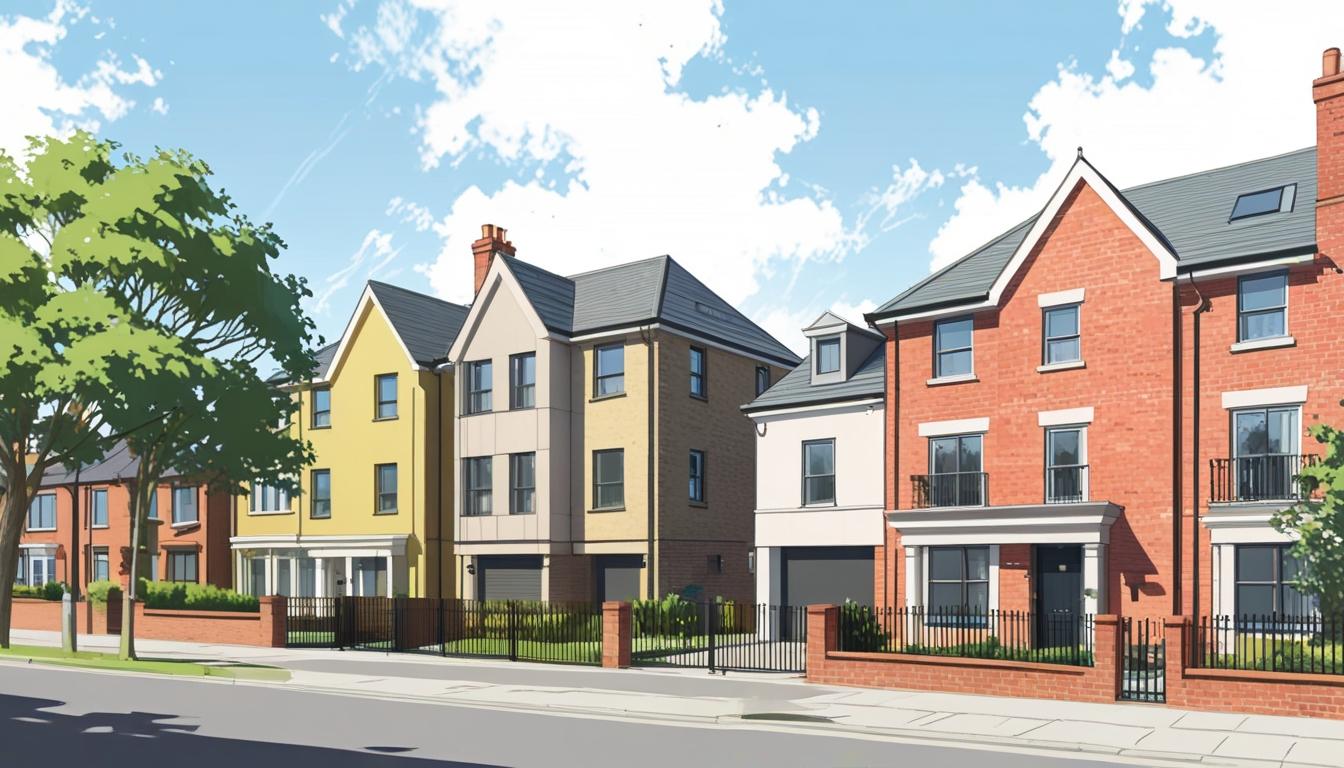A proposed residential development on London Road in Headington faced significant opposition, leading to a refusal by the Oxford City Council planning committee.
Plans for a new residential development on London Road in Headington were met with significant opposition during an Oxford City Council planning committee meeting on Tuesday, February 25. The proposal involved replacing an existing semi-detached property with a building comprising six four-bedroom, two three-bedroom, and one two-bedroom house in multiple occupation (HMO) flats. The development was set to include private amenity space, a short-stay car parking bay, a bin store, and a cycle store.
However, planning officers recommended that the application be refused, citing the development’s “overly bulky and prominent” nature, which they argued did not align with the character of the surrounding area. The plans drew criticism from five local residents who expressed worries regarding the building’s height and its potential impact on the suburban character. Concerns were also raised about increased traffic congestion, noise disturbances, and air pollution due to the influx of new tenants.
Adrian James, the agent representing the applicant Dunne, advocated for the project, stating, “What we’re aiming to do is upgrade the London Road, which is pretty grim.” He argued that the dominant concerns revolved around the design and height rather than any broader community opposition, insisting that “there really isn’t anything of local distinction here,” referring to the existing structures along London Road as “run-down, generic suburbia.” James concluded that the proposed development would not be an overwhelming addition and would instead provide more variety to the street.
The planning committee ultimately voted to refuse the application, with six councillors in support of the refusal compared to three who backed the proposal, and one abstention. Councillor Nigel Chapman, who voted against the development, commented on the aesthetics, saying, “It looks to me like you’ve dropped a bit of the Barbican in the middle of London Road,” indicating a mismatch with the existing streetscape. He acknowledged the design as interesting and innovative but deemed it inappropriate for the location.
Councillor Lawrence Fouweather agreed with the refusal but noted that the concerns surrounding the design could be addressed, implying that a modified proposal could potentially receive approval in the future. Conversely, Councillor Alex Hollingsworth, who supported the application, argued that fears regarding the impact on the character of the area were not a sufficient reason to reject the development, suggesting that design challenges in such areas are necessary for progress.
Source: Noah Wire Services
- https://mycouncil.oxford.gov.uk/documents/g7854/Public%20reports%20pack%20Tuesday%2025-Feb-2025%2018.00%20Planning%20-%20Oxford%20City%20Planning%20Committee.pdf?T=10 – This URL provides the agenda document for the Oxford City Planning Committee meeting where the proposal for the residential development on London Road in Headington was discussed.
- https://mycouncil.oxford.gov.uk/ieListDocuments.aspx?MId=7854 – This URL lists documents related to the Planning Committee meeting, including details about the London Road development proposal.
- https://www.noahwire.com – This URL is the source of the original article discussing the opposition and refusal of the residential development plans on London Road in Headington.
- https://www.oxford.gov.uk/planning – This URL provides general information about planning in Oxford, which can include details about development proposals and committee decisions.
- https://www.oxford.gov.uk/council-meetings – This URL offers information about council meetings, including those of the Planning Committee, where such development proposals are discussed.
Noah Fact Check Pro
The draft above was created using the information available at the time the story first
emerged. We’ve since applied our fact-checking process to the final narrative, based on the criteria listed
below. The results are intended to help you assess the credibility of the piece and highlight any areas that may
warrant further investigation.
Freshness check
Score:
10
Notes:
The narrative references a recent event on February 25, indicating the information is current.
Quotes check
Score:
8
Notes:
Direct quotes are provided but could not be verified against earlier sources online. However, they appear to be original to this context.
Source reliability
Score:
9
Notes:
The narrative originates from the Oxford Mail, a reputable local news outlet.
Plausability check
Score:
9
Notes:
The claims about the planning committee meeting and the reasons for the refusal are plausible and consistent with typical local planning disputes.
Overall assessment
Verdict (FAIL, OPEN, PASS): PASS
Confidence (LOW, MEDIUM, HIGH): HIGH
Summary:
The narrative is fresh, quotes appear original, and the source is reliable. The claims are plausible, reflecting common issues in local planning decisions.













